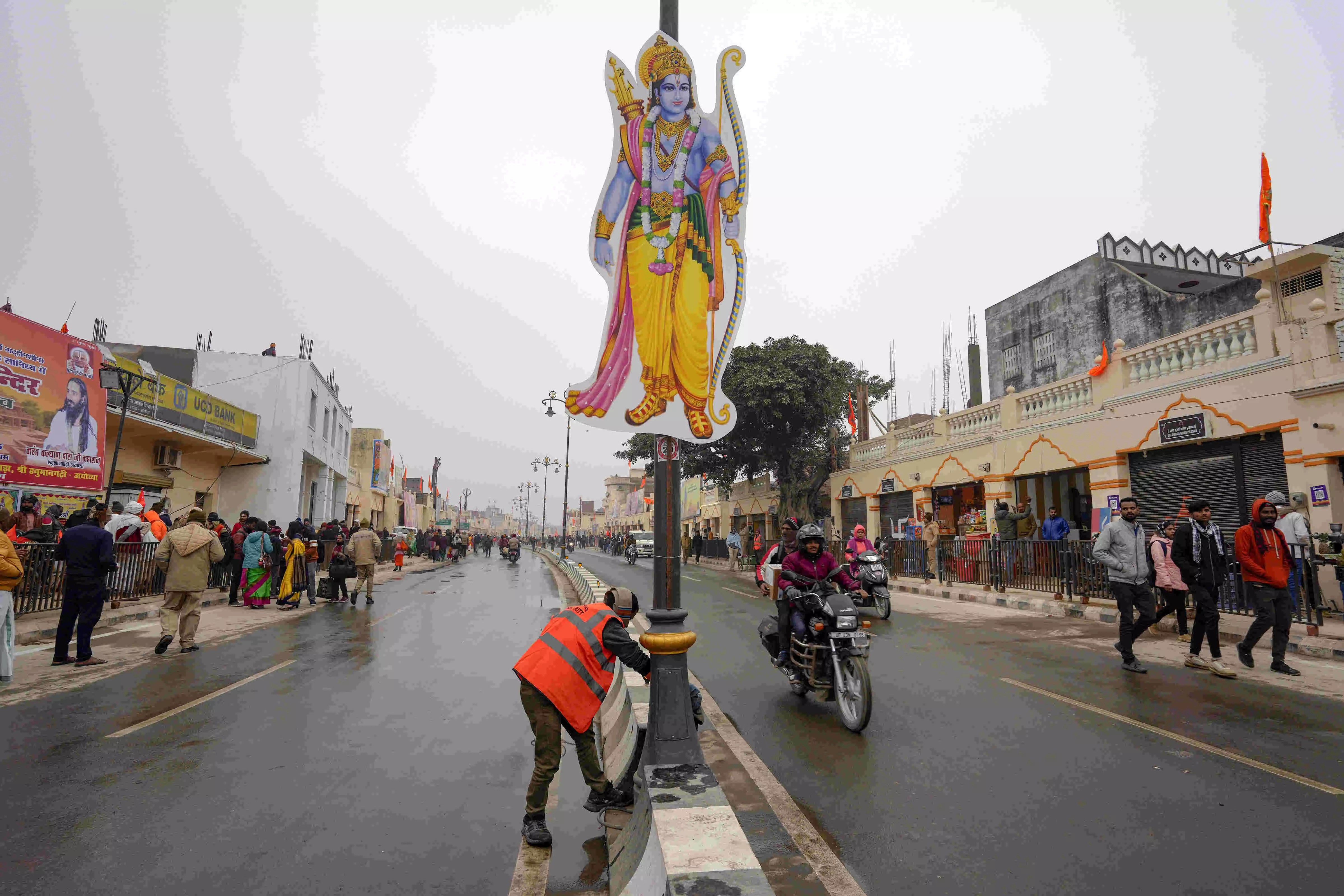A grand spectacle

With merely two days to go for the much-awaited consecration of Ram Temple in Ayodhya, a nation-wide fervour sweeps across India. In fact, the wave of devotion and jubilation transcends national boundaries, reverberating in countries that are home to significant numbers of non-resident Indians (NRIs). The existence of God may be contested, but not the collective spirit of reverence and devotion. Devotion, like all other abstract feelings, defines human conduct and must be respected. It can potentially serve as a source of selfless humility. At the top of it, Lord Rama — a revered Hindu God — led a mortal life that exemplified ethics, values, and politeness, complemented with valour and courage. Lord Rama was a unique character of Epic Ramayana, who was, remarkably, an ascetic and a warrior! However, it will be wrong to portray the upcoming consecration ceremony as merely a Hindu event. India is a land of remarkable diversity where different cultures and belief systems, as well as their symbolic celebrations, assimilate into a harmonised way of living. The great Indian history has been witness to celebrations of Eid and Deepawali that transcend religious and cultural boundaries. It is no mystery that Lord Rama has featured in the affectionate poetry of some of the most prominent Muslim poets across ages. To pen the truth, the January 22 consecration of the Ram Temple is a historic event in the course of Indian history — a history that can be claimed by all Indians, irrespective of their faith. However, one cannot turn a blind eye towards the fact that many Muslims feel robbed by the construction of the Ram Temple, as it is being built over a land that stood contested for decades, and where the Babri Mosque once stood before its demolition in the early 1990s. The resolution of the dispute had to come through a legal-judicial route — which eventually turned in favour of the proponents of the temple theory. Optics of justice is not always satisfactory to all parties, and in such cases, when all lawful avenues have already been explored, one has to comply by the final decree of law. Certain quarters allege political bias in the course of justice in the particular case, and not without reasons. The Ram Janmabhoomi-Babri Mosque contestation ceased to be a religion-only debate after the late 1980s when the BJP placed it as the pivot of its Hindutva agenda. It is hardly a mystery that the present BJP government at the Centre, as well as in Uttar Pradesh, put its entire weight behind the Ram Janmabhoomi issue. The BJP politically pushed for the issue and is not shying away from reaping the dividends. The involvement of the BJP is so obvious and intense that prominent religious leaders have castigated the party for ‘politicisation’ of the issue. They publicly denounced VHP's control of the Ram Temple consecration in Ayodhya and criticised the BJP stalwart Narendra Modi for planning to inaugurate the ‘partially built’ temple for ‘political advantage’. The State’s direct and vocal participation in the grand religious event is in defiance with the secular credentials of India. It gives an impression that the government is biased in favour of a particular religion. It must be clarified here that secularism is a constitutionally enshrined principle, and is not ‘optional’ for the parties in position of power. State’s expressed bias in favour of any particular religion, particularly one that forms the majority, may amount to a sense of alienation for the others. In a nutshell, the consecration of Ram Temple in Ayodhya is a joyous moment for the entire country, but it means different things for different entities. For the countless Hindus across India and beyond, it is an emotive and pious moment, for something very grand is being done to revere their beloved Lord Rama in his town of birth, Ayodhya. From small villages to metro cities, every region of India is brimming with a sense of devotion and joy. For people of other faiths, particularly Muslims, this might be a moment of shared joy, albeit with a sense of dissatisfaction. For the ruling government at the centre, it is an unmissable masterstroke to consolidate its position of power. The Indian Prime Minister reportedly urged Cabinet members to celebrate the Ayodhya Ram Temple consecration on January 22 akin to Diwali. At the same time, the BJP-led NDA intends to mark the ceremony grandly in the Wayanad Lok Sabha constituency, currently held by Congress leader Rahul Gandhi! For the natives of Ayodhya and adjoined regions, the consecration is also a great economic opportunity, as reports suggest that costs of accommodation and other services in the region are touching the roof. For state leaderships, it is time to bandwagon, so that they don’t miss out on being part of this grand spectacle. Commodities of rituals as well as services are floating into Ayodhya from diverse regions of the country. Several state governments have announced a full-day/half-day holiday on January 22. Notably, the Central government, too, has declared a half-day for its offices. In tangible terms, the makeover of Ayodhya is evidently clear. In the coming times, it has the potential to become a tourist-economic-religious hub. The transformation of Ayodhya will be keenly watched for. One is also curious to see to what extent the religious and serene sanctity of the place is preserved amid the rising tide of commercial and tourist activities. The grand spectacle that the Ram Temple consecration has become is a treat to watch. As the nation basks in an overwhelming sense of joy and devotion, it should be made sure that nobody feels left out. It is time to live by the lofty values and ethics that Lord Rama represented.



